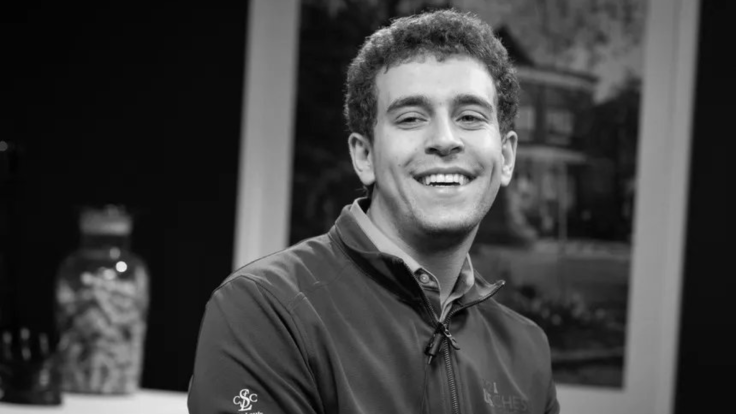Was Daniel Naroditsky a Victim of Cyberbullying? Fans Demand Answers After Vladimir Kramnik's Remarks
Kramnik's remarks about Naroditsky have reignited debate over online harassment and toxicity in professional chess.

The global chess world has been thrown into turmoil after former World Champion Vladimir Kramnik made a series of controversial remarks that appeared to question the integrity of American Grandmaster Daniel Naroditsky.
The unsubstantiated claims, shared online in October 2025, quickly spiralled into harassment and defamation allegations, igniting a broader debate on cyberbullying and responsibility within the chess community.
Kramnik's Comments Spark Outrage
The controversy began when Kramnik, 50, made public insinuations suggesting that Naroditsky may have engaged in dishonest behaviour during online play. Although no evidence accompanied the claims, Kramnik's stature as a former world champion lent weight to the allegations, triggering an intense wave of speculation and online hostility directed at Naroditsky.
Chess fans and professionals swiftly came to the 28-year-old's defence. On Chess.com, supporters described the accusations as 'character assassination'. One user wrote, 'Naroditsky has one of the cleanest reputations in chess. This is reckless and unfair.'
Vladimir Kramnik championed a false narrative and caused persistent infliction on late GM Daniel Naroditsky.
— 𝑈𝑟𝑜𝑚𝑖 𝐵𝑜𝑦 (@Anthony1Enahoro) October 21, 2025
Kramnik was actually cyberstalking Danya and didn't care about his mental health.pic.twitter.com/0MGRIEzsEf
Kramnik has yet to retract or clarify his comments. His silence has deepened calls for senior chess figures to exercise greater care when speaking publicly in digital spaces. Kramnik offered no supporting evidence, but his reputation amplified the insinuations, leading to speculation and online abuse directed at Naroditsky.
Vladimir Kramnik made it clear that his campaign against Daniel Naroditsky will never end.
— SIC (@SICunchained) October 21, 2025
Now that Danya's dead, Kramnik's only concern is that he doesn't have a person to bully.
"Justice will prevail."
Is this justice to you, @VBkramnik? https://t.co/acAcr2dsRv pic.twitter.com/91FU7rrL8b
Naroditsky's Reputation Under Attack
Naroditsky, based in California, was 'deeply shaken' by the fallout, facing targeted harassment in the days following the posts. Fellow Grandmasters told the paper that when someone of Kramnik's stature speaks, 'even a careless comment can destroy reputations.'
Support for Naroditsky, a streamer and commentator with more than a million followers across platforms, soon coalesced under the hashtag #StandWithDanya. Fans described the episode as 'unfair' and urged the chess world to hold influential players accountable for what they say online.
Chess.com moderators later released a statement reminding members to 'respect community guidelines' and warning that personal attacks would not be tolerated. 'Disagreement is part of the game,' one post read, 'but when discussions turn into harassment, real lives are destroyed.'
The Wider Issue of Online Abuse
The incident has reignited discussion about cyberbullying in competitive chess. As the game has moved increasingly online, the lines between professional analysis and personal commentary have blurred.
Digital-ethics researcher Dr Emily Carter told IBTimes UK that the growth of streaming culture has magnified both admiration and hostility. 'Top players aren't just competing, they're performing for millions,' she said. 'That visibility invites support, but also toxic scrutiny.'
Naroditsky's case reflects a pattern seen in previous controversies where players faced reputational damage from unverified claims. The paper described it as 'a reminder that keyboard commentary can spiral into real-world harm.'
RIP Daniel Naroditsky
— Mr. Brown Cup (@MrBrownCup) October 22, 2025
I am a Chess fan.
Daniel (Danya) Naroditsky was a light, a teacher, an innocent delightful man who passed too early at age 29.
He was bullied and accused of cheating by Vladimir Kramnik, @VBkramnik a former world champion who has nothing better to do than… pic.twitter.com/M0Q7HMi4xv
Experts say the situation underscores a need for more explicit conduct rules within FIDE, the International Chess Federation, particularly regarding online statements from titled players. Several officials have reportedly discussed introducing new guidelines to curb defamatory or speculative public posts.
Naroditsky's Calm Response Wins Praise
Despite the storm, Naroditsky has refrained from engaging directly with Kramnik. During a brief Twitch stream, he thanked his followers for their support, saying: 'I'm focusing on my students and my love for the game — that's where my energy belongs.'
His restraint has drawn widespread admiration from fans and fellow professionals alike. 'He doesn't need to fight back,' one viewer commented. 'His integrity speaks for itself.'
No formal defamation complaint has yet been filed. However, discussions about the incident's broader implications continue across chess forums and news outlets as one commentator observed: 'When a legend speaks, their words echo. In the digital age, those echoes can turn into storms.'
© Copyright IBTimes 2025. All rights reserved.




















